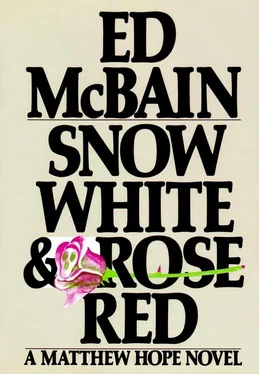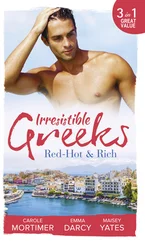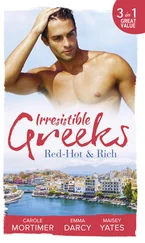The younger guys went for her, naturally — she was their dream girl next door, you know, all peaches and cream, that honey-blonde hair and those blue eyes flashing like lightning, sweet as a virgin and built like God you could die just seeing her move her pinkie. But she got an even bigger play from the older guys, the geezers who it took all night for them to get a hard-on. She played to these guys — “I think because they tipped heavier than the kids” — like she’d been waiting all night for them to walk through the door, strutted her stuff on that stage for them, made them feel like a million bucks when she went to their tables. That was where she made most of her tips. With the older guys. Man, they laid bucks on her like they were harvesting cash in the boonies off the Trail. She never went out in the pickup with anybody, not to Sylvia’s knowledge, anyway, but that was because she didn’t have to. There was gold to be mined right there inside the club, and even sharing some of it with Angus, she went home with a bundle every week.
Sylvia guessed she spent most of it on clothes. She was living in a furnished apartment all the while she worked at the club, “little shack kind of thing built up on stilts, out near Whisper Key, but on the mainland... that spit of land just before you cross the north bridge to Whisper, on the bay there, where there are a lot of mobile homes and shitty little dumps crowding the waterfront.” Sylvia had been there only once, and the place was as neat as a pin, but it was just this tiny little apartment and it was furnished with rattan stuff the owner had probably picked up at a fire sale. The closets were full of clothes; it was easy to see where all Tracy’s money went. Dresses and shoes and blouses and skirts and sweaters and one very expensive designer outfit she’d bought in a boutique on Lucy’s Circle, most of them brand-new and looking as if they’d never been worn.
“Except this one red dress,” Sylvia said.
The dress was a cheap little thing Tracy had worn when she first left Georgia to go to Hollywood. She’d worn it hitchhiking clear across the country, the red dress and red shoes, and she thought of that dress as a good-luck charm because it got her all the way to California, even though she didn’t get to be a movie star there. Also, the dress was what she called her first “grown-up” dress, which she’d bought for herself when she decided she was at last going to make the break and step out on her own. She never really wore the dress anymore, she told Sylvia, except when she came out of the shower, something to throw on while she did her nails or blow-dried her hair. That was because there was an ink spot on it, near the waist. But even though she wouldn’t be seen dead in it in public, she couldn’t bear to throw it out. There was just something... comforting about that dress. Putting that dress on — it just wrapped around, you know, no zippers or anything — she was reminded all over again of the decision she’d made when she was sixteen years old and ready to leave Georgia. The dress reminded her that one day she was going to be a movie star. Maybe that’s why she put it on whenever she got out of the shower, clean and naked, fresh and smelling of soap. The dress made her feel sixteen again. She’d told Sylvia she’d never throw that dress away — even when she got to be rich and famous, as she knew for sure she would someday.
And then, one day last July, she just didn’t show up at the club.
Nobody knew where she was.
One of the girls tried calling her at the apartment — they thought maybe she was sick or something — but nobody answered the phone. Sylvia herself had gone to the apartment the very next morning, looking for her, wanting to make sure she was all right. No one answered her knocking at the door. A next-door neighbor told her that if she was looking for the good-looking blonde gal, she was gone. A big, expensive car had picked her up the night before, and a colored chauffeur had helped her take all her clothes and things down to put in the trunk. The neighbor didn’t know where the car took her. It had driven out toward the bridge to Whisper Key.
“That’s the last I ever heard of her,” Sylvia said. She paused. “I missed her. We all did. This place wasn’t the same without her.” She paused again. “So now she’s dead.”
“This car,” Rawles said. “The neighbor didn’t happen to see the license plate number, did she?”
“It was a man,” Sylvia said. “The neighbor.”
“Did he catch the number?”
“I don’t know. I didn’t ask him.”
“What was his name, do you remember?”
“I didn’t ask him his name, either. He was just this guy popped out of a mobile home next door and told me Tracy was gone.”
“Can you give us the address of that apartment?” Bloom asked. “Where she was living.”
“I don’t remember the address. But I can tell you how to get there. You’ll know the house the minute you see it. It’s the only one up on stilts, right on the bay.”
There is no Gold Coast, as such, in Calusa, Florida.
You will not find any exclusive area here where mansions or estates nudge each other cheek by jowl. The closest thing to a preserve for the very rich might be Flamingo Key, a man-made island in the bay south of the Cortez Causeway. But even here, although many of the homes are in the $500,000-and-above range, the ambience is more of a carefully manicured and expensive development than of a luxurious enclave. You can see your neighbor’s house from any window on Flamingo Key. What the very rich buy is space — and you can’t realize that luxury on a sixty-by-a-hundred plot.
Instead, the homes of the wealthy often come as surprises in Calusa. You will be driving through what appears to be a collection of shanties constructed of tarpaper and wood, and you will turn a corner and suddenly come upon a vast lawn surrounded by a wrought-iron fence, underground sprinklers going, and set far back at the end of a long drive the main house itself, pristinely white in the sunshine. Or you will drive through a sixty-thousand-dollar housing development to come upon a secluded waterfront spot protected by a high wall, and you will know for certain that beyond that wall is a million-dollar house and a swimming pool and a tennis court. Like Topsy, Calusa just grew, and it continues to grow.
My partner, Frank, insists that one day it will be nothing more than a shabbily elegant, sun-washed slum. He isn’t even too sure of the “sun-washed” part. He says (and he’s right) that January and February down here can be worse than anyplace else in the country because you expect it to be warm and when you get temperatures dropping to the high thirties or low forties at night, you’re not prepared for taking in the brass monkeys. He maintains, moreover, that once the so-called greenhouse effect is fully realized, New York City will be as mild as Calusa sometimes is. (The “sometimes” is Frank’s word.) Whenever I ask him why he doesn’t go back to New York now , since he can’t seem to come to terms with living here , he says, “What? And freeze my kishkas ?” Frank isn’t Jewish, but he is fond of sprinkling his speech with Yiddish expressions because he feels they identify him immediately as a displaced New Yorker. This is only one of his inconsistencies; he has many.
The Whittaker mansion on Belvedere Road was a Calusa oddity. Situated on six acres of bayfront property, it was surrounded by another six acres of undeveloped land, all of it purchased by Horace Whittaker when he was busily gobbling up real estate back then in the fishing-village days. Deliberately, the surrounding acres had been left in their natural state, so that once you passed a neighboring development of houses in the hundred-thousand-dollar range, you entered a sort of time warp and found yourself in what the city must have looked like before the schemers and planners took over. It was still possible to buy twelve (or even twelve hundred) acres of undeveloped land out in the cattle country just twenty minutes or so beyond Calusa’s city limits. But such unspoiled terrain was impossible to find in the city itself — at any price. The mind boggled at the thought of what twelve acres of bayfront property would be selling for today.
Читать дальше












